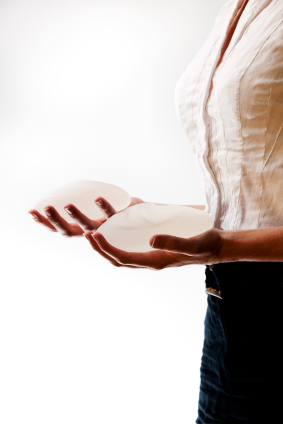Why women seek to remove their implants – and points to consider if you’re one of them

Aurora is now part of The Private Clinic, a nationwide group of clinics with over 35 years of experience specialising in Cosmetic Surgery and Skin and a Trust Pilot 5 star rating. For comprehensive information, before and after photos and costs on Implant removal and replacement procedures click here
Our expert Plastic Surgeon Adrian Richards is the Medical Director for The Private Clinic. Clinics are located in Birmingham, Bristol, Buckinghamshire, Glasgow, London Harley Street, Leeds, Manchester and Northampton.
From talking to breast implant manufacturers in the UK, we estimate that around 30-40,000 women every year receive implants.
A significant figure, but one that’s difficult to verify as there is currently no register for patients undergoing breast enlargement.
The Keogh report, released in the wake of the PIP implant scandal, recommended the creation of such a register to safeguard future patients, and its an idea we wholeheartedly agree with.
There is, after all, a register for other prosthesis – artificial knees and hips for example. But as these are more medical than cosmetic, it seems that breast implants are not considered to fall into the same bracket, and therefore do not warrant their own register.
The rise of explantation
While the number of women choosing to undergo breast enlargement is going up year on year, there has also been a steady increase in women seeking to remove their implants. And its a pattern that looks to be gaining momentum as time goes on.
At our clinics, we’ve seen a 97% increase in implant removal surgeries in the last 12 months. Here are the main reasons we hear from women seeking to remove their implants:
- Concern about the integrity of their implants particularly after the PIP scandal. Since 2012, we have treated 557 patients seeking removal of their PIP implants. Of these, 23% (128 patients) decided not to replace them. The PIP scandal has made many women understandably reluctant to have breast implants in their bodies, even if they may not have received PIPs themselves.
- They feel their body habitus has changed over time, and they no longer need implants. Most women develop more breast tissue naturally after the menopause, and with the combination of implants and increased natural tissue, they feel their breasts are now too big for their frame.
- Some women develop capsules around their implants and seek removal without replacement so the issue doesn’t recur. The severity of capsular contracture is categorised with Baker Grades, running from Grade I (soft and looks natural), to Grade IV (hard, painful and looks abnormal). If this is the case for you, your surgeon will be able to tell you where you fall on the scale usually Grades III and IV require surgery.
- Younger women may be thinking about starting a family and are concerned about breastfeeding with implants.
- And many mature women have told us, frankly, that they dont want to die with their implants. They may have received their implants as long ago as the 1960s or 1970s and feel they are no longer appropriate.
A patient’s experience of explantation
We recently received an email from a patient who came to us for removal of implants received at another clinic. She told us how it felt to finally be free of implants that were making her unhappy:
“I actually feel more confident now as I hadn’t realised how the implants had begun to get me down and how I had learned to live with the discomfort and creases. This has totally restored my faith in cosmetic surgery.”
Her before and after photos are below:



Is explantation right for you?
The average age of women seeking implant removal at our clinics is 42.3 years old – which seems an unlikely age, but makes sense in the context of many of the women being post-menopausal (50-plus) and many of them considering imminent motherhood (mostly in their 20s and 30s).
One of the main worries our patients express when thinking about the procedure is whether they’ll be left with loose and sagging skin due to the loss of volume. And this may be something in the back of your mind.
But the fact is that the skin retracts very well. For a week or so after surgery, the area can look a little empty, but eventually recovers well. Our patients are generally very pleasantly surprised.
If you are concerned about being left with droopiness to your breasts, remodelling of the tissue (in the form of an uplift) can happen at the time of explant. But in most cases this isn’t necessary. Less than 50% of the patients we see who think they’ll need a breast uplift actually require one.
And finally – 5 things to consider
If youre thinking about going ahead with explantation, here are our five most important factors to consider:
- Do you need an en bloc removal, including the implant and capsule? Or should you remove the implant and leave the capsule to preserve as much tissue as possible? If the capsule is thin and pliable, there’s usually nothing wrong with leaving it. If it is thickened and hard, it is best to remove it.
- Which incision to use? Usually surgeons like to use the same incision the implants were inserted through. However, its important to note that if it was via the armpit, a capsulectomy cannot be performed through this incision.
- Should you have an uplift at the same time? Do you really need one, or is your skin likely to recover? Your surgeon will be able to advise.
- Is it safe to leave your implants in? Generally, 15 years into the life of your implants is the time to consider removal to guard against bursting or rupture, if this is the reason you are thinking about explantation surgery.
- Is your surgeon experienced in explanting? Do your research and find someone who performs the procedure on at least 50 patients a year and is a member of at least one of the highest professional bodies in the UK for example, BAPRAS, BAAPS etc.
If you would like any more information about breast implant removal, or would like to arrange a free consultation to speak to one of our surgeons, please dont hesitate to give us a call on 01324 578290 or email info@aurora-clinics.co.uk.